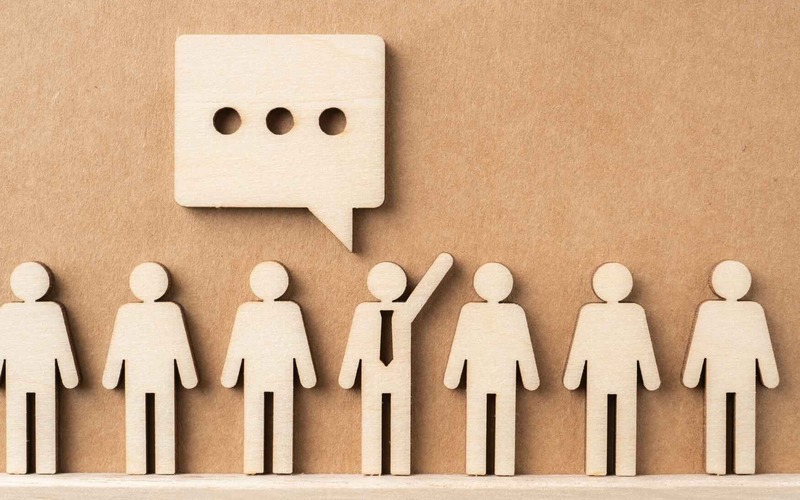Nonviolent communication
About this training
Nonviolent Communication helps you resolve your deepest conflicts within yourself and with others through the power of empathy.
What can you expect from this training session?
Through interaction and practical experiences this training session will provide you with a number of skills and tips to communicate in a nonviolent way. It shines a light on some of the confounding factors and teaches you how to distinguish between different types of conversations and how to deal with them.
Why is nonviolent communication important?
In our busy and often tense society, the ability to communicate in a connecting way is invaluable. Communicating connectively helps you avoid misunderstandings and conflict, build empathy and understanding, and cultivate harmonious relationships.
It enables you to communicate more effectively, both in personal and professional situations, and fosters a culture of respect and cooperation. When someone wants certain needs met, it is important to know the best way to address them.
The goal of nonviolent communication
The ultimate goal of connecting communication is to create a safe and supportive environment in which people can communicate openly and feel heard and understood. It helps build trust, strengthen relationships and promote mutual respect.
Nonviolent communication helps break down barriers, reduce misunderstandings and work effectively together toward common goals. It can also work to see a particular need met, for example, by speaking openly and honestly about it.
Program
This practical training programme is aimed at reinforcing the power of non-violent communication. The following subjects will be dealt with:
- Basic principles of nonviolent communication: verbal and non-verbal
- Different communication styles and how to react accordingly
- Structure and content of a non-violent message
- Giving feedback and breaking bad news: simulations and practical cases
- Analysis of resistance and reaction to criticism or objections
- Developing a language of compassion
Target group
This training course on Nonviolent Communication is aimed at anyone who wishes to communicate efficiently and persuade others, individuals and groups, in a well-structured and peaceful way.
Approach
This training course will provide you with a number of skills and tricks to communicate in a nonviolent way through interaction and practical experiences. Putting these newly acquired skills into practice is a crucial part of this interactive workshop. You will look at communication from a series of angles via group discussions and will put the acquired techniques into practice through intensive role-playing. All newly acquired knowledge and skills will come together in the final exercise: a structured argumentation during an intense group discussion.
Trainers
Results
During this interactive training course you will learn:
- to convey your message in a non-violent and respecful way
- to break down any resistance of your conversational partner to reach your goal
- to be in control in tense situations or discussions
- to communicate with more empathy both verbally and non-verbally
Register
Choose the desired date and location for this training.
Nonviolent Communication helps you resolve your deepest conflicts within yourself and with others through the power of empathy.
What can you expect from this training session?
Through interaction and practical experiences this training session will provide you with a number of skills and tips to communicate in a nonviolent way. It shines a light on some of the confounding factors and teaches you how to distinguish between different types of conversations and how to deal with them.
Antwerpen - Expert Academy
From
€ 450,00(VAT excluded)
Max. 8 participants
Nonviolent Communication helps you resolve your deepest conflicts within yourself and with others through the power of empathy.
What can you expect from this training session?
Through interaction and practical experiences this training session will provide you with a number of skills and tips to communicate in a nonviolent way. It shines a light on some of the confounding factors and teaches you how to distinguish between different types of conversations and how to deal with them.
Gent - Expert Academy
From
€ 450,00(VAT excluded)
Max. 8 participants
Nonviolent Communication helps you resolve your deepest conflicts within yourself and with others through the power of empathy.
What can you expect from this training session?
Through interaction and practical experiences this training session will provide you with a number of skills and tips to communicate in a nonviolent way. It shines a light on some of the confounding factors and teaches you how to distinguish between different types of conversations and how to deal with them.
Zemst - Elewijt Center
From
€ 450,00(VAT excluded)
Max. 8 participants
Nonviolent Communication helps you resolve your deepest conflicts within yourself and with others through the power of empathy.
What can you expect from this training session?
Through interaction and practical experiences this training session will provide you with a number of skills and tips to communicate in a nonviolent way. It shines a light on some of the confounding factors and teaches you how to distinguish between different types of conversations and how to deal with them.
Antwerpen - Expert Academy
From
€ 450,00(VAT excluded)
Max. 8 participants









